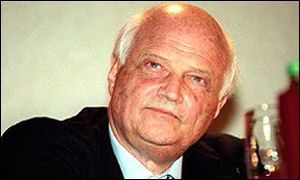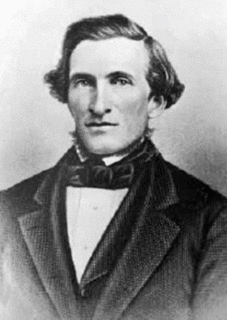A Quote by Kenny Smith
For those who do not make the transition to a matured, more spiritual self-will reason will indeed be no more than rationalization. Here is a prodigious parallel: just as in antiquity the dysdaimonic personality could not appreciate how his mentality was bound in by his characterological (banausic, doulic) biases, so in modernity the facile or abstractivist rationalist cannot comprehend how his "rationality" merely slavishly subserves his appetites, delusions, preconceptions, ideologies, etc.
Related Quotes
Each person decides in early childhood how he will live and how he will die... His trivial behavior may be decided by reason, but his important decisions have already been made: what kind of person he will marry, how many children he will have, what kind of bed he will die in... It is incredible to think, at first, that man's fate, all his nobility and all his degradation, is decided by a child no more than six years old, and usually three... (but) it is very easy to believe by looking at what is happening in the world today, and what happened yesterday, and seeing what will happen tomorrow.
None has more frequent conversations with a disagreeable self than the man of pleasure; his enthusiasms are but few and transient; his appetites, like angry creditors, are continually making fruitless demands for what he is unable to pay; and the greater his former pleasures, the more strong his regret, the more impatient his expectations. A life of pleasure is, therefore, the most unpleasing life.
Still, even the most admirable of atheists is nothing more than a moral parasite, living his life based on borrowed ethics. This is why, when pressed, the atheist will often attempt to hide his lack of conviction in his own beliefs behind some poorly formulated utilitarianism, or argue that he acts out of altruistic self-interest. But this is only post-facto rationalization, not reason or rational behavior.
On that night I was left with only the truth that nothing of our personality survives after death, that in the end all that was Misha Vainberg would evaporate along with the styles and delusions of his epoch, leaving behind not one flutter of his sad heavy brilliance, not one damp spot around which his successors could congregate to appreciate his life and times.
A man is reputed to have thought and eloquence; he cannot, for all that, say a word to his cousin or his uncle. They accuse his silence with as much reason as they would blame the insignificance of a dial in the shade. In the sun it will mark the hour. Among those who enjoy his thought, he will regain his tongue.
What is to become of an independent statesman, one who will bow the knee to no idol, who will worship nothing as a divinity but truth, virtue, and his country? I will tell you; he will be regarded more by posterity than those who worship hounds and horses; and although he will not make his own fortune, he will make the fortune of his country.
No man, however enslaved to his appetites, or hurried by his passions, can, while he preserves his intellects unimpaired, please himself with promoting the corruption of others. He whose merit has enlarged his influence would surely wish to exert it for the benefit of mankind. Yet such will be the effect of his reputation, while he suffers himself to indulge in any favourite fault, that they who have no hope to reach his excellence will catch at his failings, and his virtues will be cited to justify the copiers of his vices.
For we are so preciously loved by God that we cannot even comprehend it. No created being can ever know how much and how sweetly and tenderly God loves them. It is only with the help of his grace that we are able to persevere in spiritual contemplation with endless wonder at his high, surpassing, immeasurable love which our Lord in his goodness has for us.
There's an all-enveloping destructiveness in Donald Trump's character and in his psychological tendencies. But I've focused on what professionally I call solipsistic reality. Solipsistic reality means that the only reality he's capable of embracing has to do with his own self and the perception by and protection of his own self. And for a president to be so bound in this isolated solipsistic reality could not be more dangerous for the country and for the world. He's not psychotic, but I think ultimately this solipsistic reality will be the source of his removal from the presidency.
A man that advances in spiritual and in temporal matters at the same time, minding to keep the spiritual first, will not let the temporal lead him; he will not place his heart upon his farm, his horses, or any possession that he has. He will place his desires in heaven, and will anchor his hope in that eternal soil; and his temporal affairs will come up as he advances in the knowledge of God.
So near are the boundaries of panegyric and invective, that a worn-out sinner is sometimes found to make the best declaimer against sin. The same high-seasoned descriptions which in his unregenerate state served to inflame his appetites, in his new province of a moralist will serve him (a little turned) to expose the enormity of those appetites in other men.






































